By: Victor Trammell
Photo credits: Creative Commons
John Allen Amos, a New Jersey native and the son of a mechanic, has built an illustrious career in cinema and television.
On the merit of his imposing size, firebrand demeanor, and commanding stature, Amos represented himself well to earn better acting roles at a pivotal checkpoint on his legendary journey. His first steps to fame went toward an uphill struggle to advance in a trivial industry, which undervalues the range of abilities possessed by black performers and creators.
Portraying characters on-screen who project harsh or humiliating stereotypes (while the performer is simultaneously subjected to pigeonholing on the real-life movie set) can be blistering. Unfortunately, this is figuratively the factory equipment’s gears that drive Hollywood’s well-oiled, yet highly controversial entertainment machine.
Whether they are on stage, on television, or appearing in motion pictures that play at the big-screen theatres, black America’s stars know that everything that glitters is not gold.
Early Life and Career Genesis
John Amos was born on December 27, 1939. He worked as an advertising copywriter and as a social worker at New York’s Vera Institute of Justice.
He was also a semi-professional football player in the United States and Canada prior to becoming an actor. He began his career as a stand-up comic in Greenwich Village, New York. However, his work eventually brought him to Los Angeles, California. He was hired there as a staff writer for Leslie Uggams’ musical variety program in 1969.
Amos made his professional theatrical debut in a 1971 Los Angeles production of the comedy “Norman, Is That You?” He then was nominated for “Best Actor” by the Los Angeles Drama Critics. As a result, he founded his own theatrical company and began touring to perform “Norman, Is That You?” Amos returned to New York the following year to make his Broadway debut in “Tough To Get Help.” He already landed a supporting role on the Mary Tyler Moore Show as Gordy the weatherman at this time (1970).
But his role remained peripheral, which lead him to quit the show after three disappointing seasons. However, Amos always looked on the bright side. He was cast in creator Norman Lear’s Maude (1972), starring Bea Arthur. Amos played the constantly jobless husband of maid Florida Evans (played by Esther Rolle). The two protagonists of Good Times were divided into their own successful programs (1974).
The Good Times of the 1970s
Good Times (1974), a family comedy set in a high-rise in a Chicago ghetto, was billed as the first network series made by African-Americans. However, as the show’s leadership evolved, John became more disillusioned with the show’s writing and leadership under Lear. It was drifting away from the significance of family values and toward Jimmie Walker’s antics as JJ, the aimless, arrogant, jive-talking adolescent son who was quickly becoming a fan favorite on the program.
By 1976, when Amos’s character was fired from the program. This happened in an episode where he was murdered in an off-screen vehicle accident while looking for work out of state.
Amos recovered swiftly after his Emmy nomination for his portrayal as adult Kunte Kinte in the legendary epic miniseries Roots (1977). This was one of the most powerful and dignified television dramas ever. It was the television role of Amos’s incomparable career. However, Amos struggled to help other black performers get additional notable roles. However, for himself, he took every effort he could to avoid taking roles that adored stupidity and glorified criminals.
Courage Carried on the High Road
As a black man who set high moral standards for himself and his people, Amos had to put up with the mediocre at times as a sacrifice. Such instances included guest appearances on The Love Boat (1977), “The A-Team,” “Murder, She Wrote,” and “One Life to Live”). In exchange for this he landed a few more notable roles in the mini-film Willa (1979), as well as in other feature films The Beastmaster (1982) and Coming to America (1988).
Amos has also collaborated on a lot of action films, which have showcased masculine characters battling it out–from the realms of the filmmaker’s vision of a struggle between good and evil. As a former member of the U.S. Armed Forces (New Jersey National Guard, Master Chief, U.S. Coast Guard), he honed the physical and mental toughness needed to be convincing as a bankable action hero.
On the proscenium stage, Amos discovered one solution to his career’s historic dilemmas. In 1985, destiny was fullfilled when he won the NAACP Award for Best Actor as a character in portrayed in the play titled “Split Second.” Amos also garnered critical acclaim for his performances in the Berkshire Theater Festival’s “The Boys Next Door,” a tour of Eugene O’Neill’s epic “The Emperor Jones,” and a Detroit production of Athol Fugard’s “Master Harold…and The Boys.”
Directorial Debut, Late Career and Presence Today
John also directed two critically acclaimed plays in the Bahamas, titled “Miss Reardon Drinks a Little” and “Twelve Angry Men.”
He took on Shakespeare as Sir Toby Belch in “Twelfth Night” at Joseph Papp’s New York Shakespeare. This was after his appearance in Wilson’s Pulitzer Prize-winning drama “Fences” at Albany, New York’s Capital Repertory Company. He earned great praise for his depiction of a buffalo soldier in “The Life and Death of a Buffalo Soldier” at England’s Bristol Old Vic.
His theatrical career was completed with the 1990 debut of his one-man show “Halley’s Comet,” a hilarious and humane American odyssey through the life of an 87-year-old who recalls World War II, the golden era of radio, the early civil rights movement, and his 11-year-old observation of the Comet. He also wrote and directed the program, which ran during the 2007-2008 television season.
In 2020, John Amos became a New Jersey Hall of Fame Inductee.
Amos has had guest appearances on “The West Wing” and “The District” in more recent years. He also appeared in Anne Heche’s strange series titled Men in Trees (2006). Two of Amos’s children (with ex-wife Noel Mickelson-Noel), the offspring from the first of his two marriages, are successful. The daughter, Shannon Amos, is a filmmaker, writer, producer, and editor. The son, named K.C. Amos, is also a director, writer, producer, and editor.
Amos moved to Westcliffe, Colorado in 2020 after selling his former home in New Jersey.
With his signature husky but solid build, Amos’s reputation has always preceded him. He is called television’s first strong black family man who “kept it real.” In that role, Amos became a folk hero–who depicted what was needed (but systemically made obsolete) in so many predominantly black government-subsidized public housing communities–a strong father.
A papa who took no mess through struggle inside a place his people call “the projects,” is still trucking tough at the ripe age of 82.






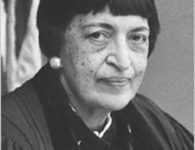
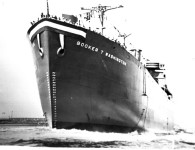

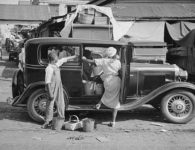
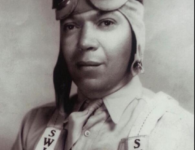

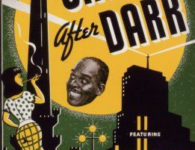
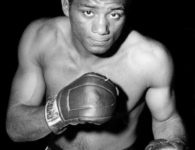
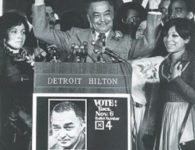


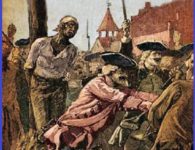

No comments